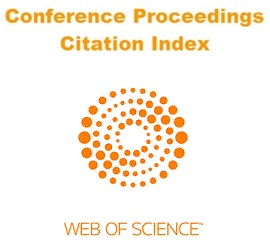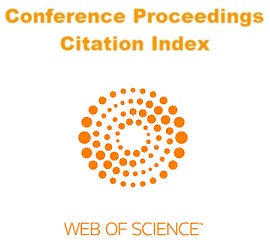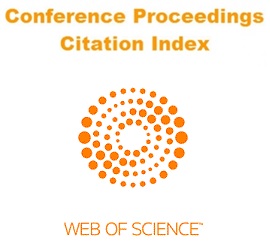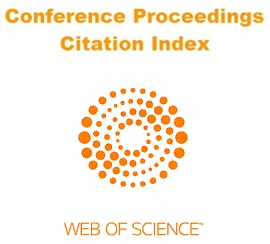The 1st International Conference on South East Asia Studies (ICSEAS 2016)
The 1st International Conference on South East Asia Studies, ICSEAS 2016, was hosted by Badan Penerbit dan Publikasi Universitas Gadjah Mada, Yogyakarta, Indonesia. This conference intended to bring out the challenges which come from the decrease of absolute poverty and the problems it poses to an open forum in a way researchers could exchange their ideas freely in order to fundamentally help put the challenge of the twentieth century for the region in a clear perspective. ICSEAS 2016 invited 23 international speakers from Australia, Indonesia, Japan, South Korea and the United Kingdom that highlighted the recent developments in the specific area through speech, parallel and plenary sessions. ICSEAS 2016 also invited 19 researchers from related fields to referee ICSEAS 2016’s manuscripts. After a careful refereeing process, the Scientific & Editorial Board have selected 36 manuscripts from over 150 registered presenters. These selected manuscripts reflect the seven themes of ICSEAS 2016, including pluralism in a democratic Southeast Asia, challenges to democracy, welfare and poverty in an unequal society, equality and new categories of discrimination, climate change and its challenges, food security and the future of Southeast Asia, and challenges to border security. Editing process in this proceedings involves experts and professional editors from five countries (Indonesia, Latvia, Singapore, Sweden, and Thailand).
Conference date: 13–14 October 2016
Location: Auditorium of Universitas Gadjah Mada Graduate School, Yogyakarta, Indonesia
Editors: Roy Hendroko Setyobudi (Malang, IDN), Juris Burlakovs (Kalmar, SWD), Listia Natadjaja (Surabaya, IDN), Peeyush Soni (Klong Luang, THA) and Zane Vincevica-Gaile (Riga, LVA)
Organizer: Badan Penerbit dan Publikasi Universitas Gadjah Mada
Published: 23 May 2018
ISSN: 2518-668X
Indexing: The ICSEAS 2016 Conference Proceedings are indexed in Web of Science (by Clarivate Analytics, formerly Thomson Reuters and ISI).

The First International Research Conference on Economics and Business (IRCEB)
The First International Research Conference on Economics and Business (1st IRCEB) aimed at presenting current research being undertaken in the areas of economics and business. Professor Claudio Morana (Milan State University) and Associate Professor Rubi Ahmad (Faculty of Business and Accounting University of Malaya) gave keynote speeches at the conference. Prospective authors were cordially invited to submit full papers for oral presentation. All the accepted papers are published with ISBN.
Conference topics: Accounting, economics education, business ethics, change management, consumer behaviour, corporate finance, corporate governance, economic development, economic policy, education, entrepreneurship, investment, financial economics, global business, human resource management, international business, international economics, international finance, management information systems, marketing research and strategy, marketing theory and applications, organizational behaviour and theory, production/operations management, small business management, and strategic management.
Conference date: 11–12 December 2017
Location: Atria Hotel, Malang, Indonesia
Editor: Yuli Soesetio
Sponsor: Faculty of Economics, Universitas Negeri Malang
Published: 23 April 2018
ISSN: 2518-668X

The 1st Annual International Conference on Language and Literature (AICLL)
The 1st AICLL 2018 invited researchers, educators, academicians, stakeholders and other participants of related studies from all over the world to exchange and share knowledge in this prestigious convention. The conference provided an excellent forum for sharing knowledge and research findings among researchers, practitioners, academicians, professionals, and students. Topics of interests covered all theoretical and practical aspects of Language and Literature. The primary goal of the 1st AICLL 2018 was to promote Language and Literature as Media of Harmony Sustainability, especially of the latest researches and innovations through discussion, exchange and sharing among researchers, practitioners, academicians, professionals, and students.
The speakers invited to the conference were Abdur Raheem Kidwai (professor of English Literature at Aligarh Muslim University, India); Mohd. Asaduddin (professor of English Literature at Jamia Millia Islamia, New Delhi, India); Mohd. Nazri Latiff Azmi (associate professor of English Literature at Universiti Sultan Zainal Abidin, Malaysia); Jumino Suhadi (professor of Linguistics at Universitas Islam Sumatera Utara, Indonesia); Burhanuddin Arafah (professor of English Literature at Universitas Hasanuddin, Indonesia); Amrin Saragih (professor of Linguistics at Universitas Negeri Medan, Indonesia); Tengku Sylvana Sinar (professor of Linguistics at Universitas Sumatera Utara, Indonesia); and Efendi Barus (professor of Linguistics at Universitas Islam Sumatera Utara, Indonesia).
Conference date: 18–19 April 2018
Location: Universitas Islam Sumatera Utara (UISU), Medan, Indonesia
Editors: Purwarno, M. Manugeren, Andang Suhendi, Purwanto Siwi, and Susi Ekalestari
Organizer: Fakultas Sastra, UISU, Medan
Published: 19 April 2018
ISSN: 2518-668X
Indexing: The AICLL 2018 Conference Proceedings are indexed in Web of Science (by Clarivate Analytics, formerly Thomson Reuters and ISI).

III Network AML/CFT Institute International Scientific and Research Conference "FinTech and RegTech"
One of the international, regional and national AML/CFT systems’ priorities in terms of prospects for the introduction of new financial technology (FinTech) is the creation of a platform for constructive dialogue and support of innovation in financial services, and finding solutions for their regulation and control. FinTech innovations can improve financial inclusion of customers, entities, and communities. The financial services paradigm can be reorganized around new platforms, infrastructures, and relations with service providers. The prospect of the international AML/CFT community’s efforts is to understand how these changes will affect the landscape of financial services, the stability of the financial system, and the opportunities to identify, eliminate or reduce risks and threats. In the modern world, financial threats and risks have become quite systemic things. Therefore, they can be dealt with only by systemic methods. Scientific and educational organizations play an important role in this fight. Joint efforts of financial monitoring bodies, the academic community, and network AML/CFT Institute will contribute to strengthening and development of the system of international and regional financial security.
Conference date: 21–23 November 2017
Location: Moscow, Russian Federation
Editors: V. I. Glotov, Federal Financial Monitoring Service (Headquarters and Interregional Departments), Russia; P. Y. Leonov, National Research Nuclear University MEPhI (Moscow Engineering Physics Institute), Russia; A. N. Norkina, National Research Nuclear University MEPhI (Moscow Engineering Physics Institute), Russia; V. V. Ovchinnikov, International Training and Methodology Centre for Financial Monitoring (ITMCFM), Russia
Organizers: Federal Financial Monitoring Service (Headquarters and Interregional Departments), Russian Academy of Sciences, National Research Nuclear University MEPhI (Moscow Engineering Physics Institute), and State University of Management (Russia)
Sponsors: Federal Financial Monitoring Service (Headquarters and Interregional Departments), Russian Academy of Sciences, National Research Nuclear University MEPhI (Moscow Engineering Physics Institute), Russian Association of Business Education, State University of Management (Russia), and Moscow University of Finance and Law (Russia)
Published: 13 February 2018
ISSN: 2518-668X
The 9th International Conference on Advances in Information Technology (IAIT-2017)
In today’s modern life, societies have to embrace digital technologies at their homes (or offices) and use them to enhance the quality of their lives. The emergence of aging societies around the world prompts a more urgent need for having more affordable and easy-to-set-up “Smart Life Environment,” as well as assisted technologies used inside a home with high performance and efficient solutions and platforms. The adoption of the Internet and technology devices such as smart tracking devices, smartphones, and other sensors in other smart devices adds ubiquity and mobility to existing information systems and expands the horizon of endless possibility in research and development.
Conference date: 22–24 November 2017
Location: King Mongkut’s University of Technology Thonburi, Thailand
Editor: Dr. Vajirasak Vanijja
Sponsors: King Mongkut’s University of Technology Thonburi; National Science and Technology Development Agency (NSTDA); Digital Economy Promotion Agency; CDG System Ltd.; Professional Computer Company Limited; and Yip In Tsoi & Co., Ltd.
Published: 8 January 2018
ISSN: 2518-668X
Indexing: The IAIT-2017 Conference Proceedings are indexed in Web of Science (by Clarivate Analytics, formerly Thomson Reuters and ISI).

The 3rd International Conference on Social and Political Science (ICoSaPS)
The development of technology has the potential to make many aspects of human life easier, which makes innovation in technology very important. Information technology plays one of the most important roles in the development of Indonesia. Information technology is a general term for any technology that helps people to create, modify, store, communicate, or disseminate information. It is closely associated with the Internet, and since the 1990s, the Internet has become an important part of Indonesian life. However, there are two very important things that should be inherent in any technological innovation—the technical and the social elements. It is undeniable that the technological innovation will have implications on the social life. These implications need to be elaborated by the scientists in the field of social studies. This conference is expected to be a place for researchers, academics, and students to share their research and studies in the context of the impact of technology information on political and social dynamics.
Conference date: 2–3 November 2016
Location: Central Java, Indonesia
Editors: Eric Loo (Wollongong University), Mohammed Yusuf (University of Portsmouth), Rino A. Nugroho (Universitas Sebelas Maret), and Septyanyo Galan Prakoso (Universitas Sebelas Maret)
Organizer: Faculty of Social and Political Sciences, Universitas Sebelas Maret
Published: 12 June 2017
ISSN: 2518-668X

Indexing: ICoSaPS Conference Proceedings are indexed in Web of Science (by Clarivate Analytics, formerly Thomson Reuters and ISI) as of 19 May 2018.
The 4th International Conference on Language, Society and Culture in Asian Contexts (LSCAC)
The 4th International Conference on Language, Society and Culture in Asian Contexts (LSCAC 2016) is a biannual conference organized to create a space where people could exchange academic knowledge and build up international collaboration so as to bring a new body of knowledge into the development of the Asian society, as well as to strengthen network among scholars whose research interests lie in the Asian context. The theme for the 2016 conference, which was hosted by Universitas Negeri Malang, is “Cultivating and Casting Asian Diversities: Empowering the Asians.” Some relevant topics to the theme of this conference were thoroughly discussed in featured speaker sessions, paper sessions, pecha kucha, and roundtable discussions, where representatives from several countries in Asia shared their ideas, insights on Asian diversities as a discourse to strengthen understanding and to foster creativity, growth, and social innovation among Asians to be a better Asia.
Conference date: 24–25 May 2016
Location: Malang, Indonesia
Editor: Utami Widiati, Universitas Negeri Malang, Indonesia
Organizers: Mahasarakham University, Thailand; University of Hyderabad, India; College of Education, Hue University, Vietnam; and Universitas Negeri Malang, Indonesia
Sponsors: Faculty of Letters, Faculty of Social Sciences, and Faculty of Education (Universitas Negeri), Malang, Indonesia
Published: 12 April 2017
ISSN: 2518-668X
Indexing: LSCAC Conference Proceedings are indexed in Web of Science (by Clarivate Analytics, formerly Thomson Reuters and ISI) as of 29 December 2017.

The Economies of Balkan and Eastern Europe Countries in the Changed World (EBEEC)
The economies of Balkans and Eastern Europe countries have almost completed a course of two decades with significant changes in their characteristics and their adaptation in the new economic environment. This course has foregrounded significant difficulties, highlighted particular problems that the countries of a particular region face, and it has led to different sates and patterns of growth and enhancement of the economies.
The objective of the conference: The objective of the conference was to discuss and evaluate the results of the economic policies that have been applied during the last two decades, to suspend the prospect challenges, and to investigate the policies in the sector of economy, which are considered necessary, so that the countries to be integrated get as much benefit as possible.
Conference date: 6–8 May 2016
Location: Split, Croatia
Editors: Anastasios Karasavvoglou (Eastern Macedonia and Thrace Institute of Technology, Greece), Persefoni Polychronidou (Eastern Macedonia and Thrace Institute of Technology), and Fotini Perdiki
Published: 19 March 2017
ISSN: 2518-668X
Indexing: EBEEC Conference Proceedings are indexed in Web of Science (by Clarivate Analytics, formerly Thomson Reuters and ISI) as of 29 December 2017.

International Conference on Social Science and Biodiversity of Papua and Papua New Guinea (ICSBP 2015)
The Asia Pacific region today is one of the fastest-growing regions in the world with strong economic growth. Due to globalization, the world economy has undergone significant changes. While Europe’s economic growth has been slowing down, Asia Pacific’s consistently shows an impressive growth. In the next few years, the economic growth in the region will remain strong, in parallel with improving living standards in the region. With its huge population and strategic location, Asia Pacific offers many opportunities for countries outside the region to embark on collaboration and economic cooperation.
Conference date: 16–17 November 2015
Location: Jayapura, Indonesia
Editors: Julius Ary Mollet, Octolia Togibasa, Veronika Kusumaryati, Petrus Kanisius Farneubu, and Agnes Angelita Suyanto
Sponsors: PT Freeport Indonesia, BP, SKKMIGAS, Harvard University—Department of Anthropology, and Australian National University—Indonesia Project
Published: 25 August 2016
ISSN: 2518-668X
Indexing: ICSBP Conference Proceedings are indexed in Web of Science (by Clarivate Analytics, formerly Thomson Reuters and ISI) as of 23 March 2017.









